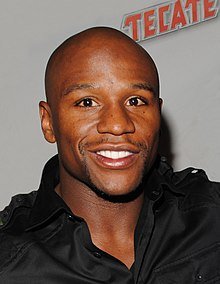The Historic Earnings of Floyd Mayweather Jr.
On June 5, 2018, Floyd Mayweather Jr. was named the top-earning sportsperson of 2017 by Forbes, with an astounding $285 million in earnings. This figure not only marked a significant financial milestone for Mayweather but also set a new benchmark in the realm of sports earnings. The key contributor to this remarkable income was his highly publicized boxing match against UFC star Conor McGregor, which took place on August 26, 2017.
The Mayweather-McGregor fight, often dubbed “The Money Fight,” generated substantial revenue through various channels. The bout’s pay-per-view (PPV) earnings were particularly noteworthy, bringing in over $400 million from approximately 4.3 million PPV purchases. This historic event became the second highest-selling PPV fight of all time, only behind Mayweather’s 2015 match against Manny Pacquiao. In addition to PPV revenue, ticket sales for the fight contributed significantly to Mayweather’s earnings. The T-Mobile Arena in Las Vegas saw gate receipts amounting to over $55 million, further bolstering his income.
Sponsorships and endorsements also played a pivotal role in Mayweather’s financial triumph. Brands were eager to associate themselves with such a high-profile event, leading to lucrative deals that added millions to his earnings. Moreover, Mayweather’s own promotion company, Mayweather Promotions, ensured he received a larger share of the revenue generated from the fight, unlike many other athletes who rely on external promoters.
To provide historical context, Mayweather’s earnings in 2017 were unprecedented when compared to other top-earning athletes in previous years. For instance, Lionel Messi and Cristiano Ronaldo, who are consistently among the highest-paid athletes, earned significantly less than Mayweather during the same period. According to Forbes, Messi earned $111 million, while Ronaldo earned $108 million in 2017. This stark contrast underscores the exceptional nature of Mayweather’s financial success.
External references from reputable sources, such as Forbes, validate these financial figures and provide deeper insights into the economic impact of Mayweather’s bouts. The convergence of PPV revenue, ticket sales, and strategic sponsorships culminated in a historic financial year for Floyd Mayweather Jr., solidifying his status as the top-earning sportsperson of 2017.
The Floyd Mayweather Jr. vs. Conor McGregor fight, held on August 26, 2017, was not just a boxing match; it was a landmark event that exemplified the growing trend of crossover events in sports entertainment. This highly anticipated bout saw Mayweather, an undefeated boxing champion, face McGregor, a mixed martial arts (MMA) superstar, in a spectacle that captivated audiences worldwide. The fight was a monumental success, owing much to the innovative promotional strategies, extensive media coverage, and unprecedented fan engagement that surrounded it.
The promotional campaign for the Mayweather vs. McGregor fight was unparalleled. Both athletes, renowned for their charisma and ability to draw attention, embarked on a global tour, creating a buzz that was impossible to ignore. This tour included stops in Los Angeles, Toronto, New York, and London, each drawing massive crowds and extensive media attention. The use of social media also played a crucial role in amplifying the excitement, with both fighters frequently engaging with their fans and each other on platforms like Twitter and Instagram.
Media coverage of the event was extensive, spanning traditional outlets such as television and newspapers, as well as digital platforms. Major sports networks dedicated significant airtime to the buildup and aftermath of the fight, while online publications and blogs provided continuous updates and analysis. The widespread coverage ensured that the event reached a global audience, further enhancing its financial success.
Fan engagement was another critical element in the fight’s success. Pay-per-view sales shattered previous records, with millions tuning in to watch the bout live. The fight also generated substantial social media interaction, with fans and celebrities alike discussing and debating the outcome. The event demonstrated the enormous potential for crossover events to draw interest from diverse fan bases, thereby expanding the reach and economic impact of sports entertainment.
The implications of the Mayweather vs. McGregor fight extend beyond its immediate financial success. The event highlighted the viability of crossover matchups, paving the way for future bouts between athletes from different disciplines. This trend has the potential to create new revenue streams and provide novel entertainment experiences for fans. The success of this fight underscores the evolving landscape of sports entertainment, where innovation and cross-promotion are key to capturing and maintaining audience interest.

